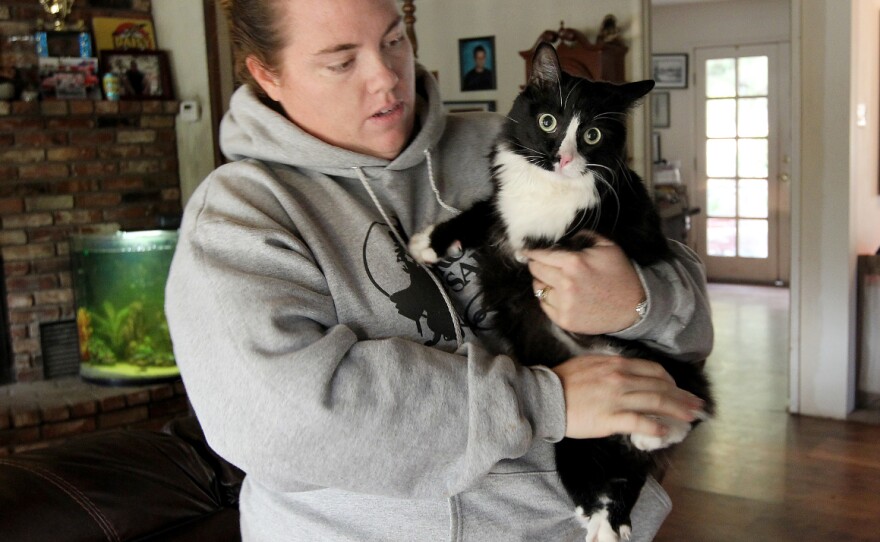Dogs, not people, may hold the key to improved treatments, even a possible cure, for valley fever.
One way researchers have lured private money is by proposing research projects involving pets, the theory being that companies and donors would see more of a market potential in dogs and cats suffering and dying from the disease.
Dogs and humans get hit with valley fever in a very similar way. They inhale spores from a fungus common in the soil in the Southwest. The spores take root in the lungs and can spread to other organs and parts of the body.
Some hope that research in dogs will also benefit humans in the long run. What’s been done so far, though, is only preliminary.
Craig Woods, a veterinarian scientist and founder of IMULAN BioTherapeutics LLC in Arizona, said his company has been testing a potential treatment on dogs with severe cases of valley fever.
IMULAN is trying to see if dogs that don’t respond well to antifungal therapy will get better faster after being given an immune system stimulant developed by IMULAN.
“If your immune system isn’t functioning right, we’ll facilitate the immune system to recognize and clear the infection,” Woods said.
The first study was conducted internally in 2009 and never published, Woods said. The company is preparing to do a second, much larger study, he said.
Woods believes the research will shed some light on a potential treatment for people as well.
“We are quite excited to begin this work, it’s just a matter of funding,” he said, adding that his employees are volunteering their time until funding is secured.
“Nobody has ever funded us,” he said. “We are self-funded… We have to be very careful on how we spend our resources.”
Woods first became interested in valley fever in dogs in 2004 after treating dogs with valley fever in his veterinary practice and seeing how devastating the disease could be.
“It’s not pleasant to see,” he said.
Dr. John Galgiani at the University of Arizona and chief medical officer for Valley Fever Solutions Inc. said his startup company also has been doing preliminary research in dogs.
Last year, 12 dogs were given a drug called Nikkomycin Z, also known as NikZ, for two months. And the results were encouraging, he said.
“Some of the dogs seemed to be doing better,” he said.
The startup company is doing work to further develop the drug, which would also be used in humans.



